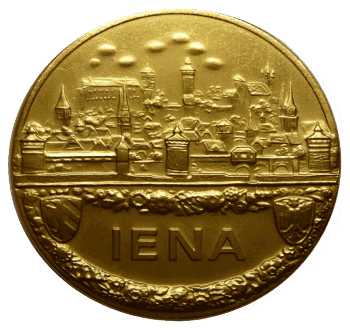SOY PROTEIN
Without proteins, life would not be possible.
Amino acids are the building blocks of proteins and our body is dependent on an adequate supply of amino acids to synthesise proteins.
When compared to cereals, soy proteins are rich in lysine, an essential and nutritionally particularly valuable amino acid. Methionine and cysteine, the two sulphur-containing amino acids, are also essential amino acids but are present at lower concentrations than in cereals. Out of all free amino acids, arginine is present at particular high concentration, but asparagine, glutamic acid and aspartate can also be found, albeit at lower concentrations.
Soy protein is a valuable and particularly complete protein as it contains all essential amino acids which cannot be made by the body and must come from food. The amino acids score of 100 means means that this protein contains all essential amino acids in sufficient amounts to meet the needs of our body and promote protein synthesis.
The amino acids score is used to describe whether the amino acid composition of a particular protein can meet our body’s needs.
Soy protein stimulates muscle protein synthesis, muscle mass and muscle function
It could be shown that a dietary intake of soy protein increases protein synthesis and muscle protein synthesis in those who work out regularly. An increase in muscle mass and muscle protein synthesis is equally seen in the elderly and is a result of the positive influence of soy protein on protein synthesis.
A healthy muscular system is critical for a healthy body and a good a good quality of life. The muscular system is the largest metabolic organ in our body and is not only essential for our mobility but also acts as a storage facility for protein which may be used by our body in emergency situations. A higher muscle mass helps to burn fat, prevent diabetes mellitus type 2 and has also been shown to increase life expectancy.
Loss of muscle mass is already seen in young adults and the rate of loss increases in people over the age of 50. We lose approximately 50% of muscle mass and muscle strength between the age of 20 and 70.
According to the “Bundesministerium für Gesundheit“ (BMG, Ministry of Health), a third of those over 65 living at home have at least on fall a year. For those living in nursing homes, it is 50%. Although most people in this age group do not hurt themselves seriously, many fear to fracture their femur and become bedridden as a result.
An early dietary supplement of soy protein and soy spermidine is needed.
Soy contains more than 40% of high-quality protein
Soy is a high-quality protein. High-quality proteins contain all essential amino acids and therefore all building blocks for protein synthesis in our body. Essential amino acids in soybeans fulfil these criteria and therefore the amino acid score of soybeans is 100.
In 1993, the FDA introduced the “Protein Digestibility Corrected Amino Acid Score” which in addition takes into account how easily digested a protein is and -again- soybeans were awarded the perfect score of 1.0 (Henley, et al., 1994).
Soy protein, just as soy spermidine, promotes protein synthesis
Soy protein promotes protein synthesis as well.
Proteins are built from amino acids and our body needs sufficient amounts of these amino acids for protein synthesis. Soy protein is an excellent source for these amino acids as it contains all essential amino acids which cannot be produced in our body and therefore have to be taken in from food.
It was shown that supplementation of soy protein increases protein synthesis in your body, especially after physical activity like weight training. Soy protein can also help to increase muscle mass, improve muscle function and prevent muscle loss in old age.
Some studies have also indicated that soy protein is equally good at promoting protein synthesis as other sources of proteins like milk protein or whey protein. Furthermore, it is also an alternative to animal derived proteins and may be recommended as “meatless meat”.
On reflection, soy protein can help to increase protein synthesis in our body and thereby support growth and repair of muscle tissue and help to prevent loss of muscle mass in old age.
Soy protein lowers levels of saturated fatty acids and cholesterol in plasma
Reducing levels of tri-glycerides is an established effect of soy protein and many studies have suggested that this effect is attributed to soy protein b-conglycinin fraction (Aoyama et al., 2001, Moriyama et al., 2004, Kohno et al., 2006, Tachibana et al., 2010).
Buy our – Spermidine Sojapowder with high concectration of spermidine
More Information:
https://en.wikipedia.org/wiki/Soy_protein
Note: This information is provided for educational purposes and does not substitute for professional medical advice. Always consult with healthcare providers for personalized guidance on health-related matters.
Copyright © Eduard Rappold 2024


